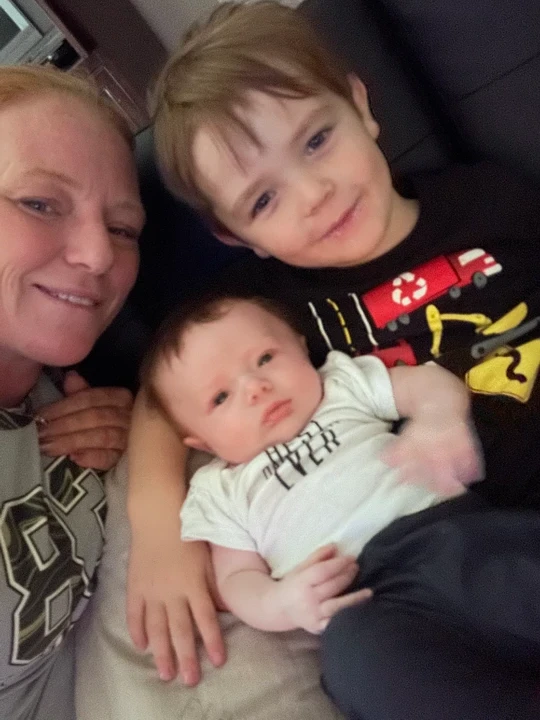
Lindsey is a strong and resourceful young mother. As a single parent, she recently had to take care of herself and her 4 year old son through an extraordinarily difficult pregnancy. Among other things, she had to be hospitalized due to high blood pressure, a major risk for pregnant women. Her nausea was so severe that she was unable to keep vitamins down and she suffered bone loss and tooth decay. She is now plagued with severe dental pain and needs oral surgery.
Like many young moms, Lindsey’s pregnancy related health conditions did not suddenly disappear after her daughter was born on 5/17/23. Also, like many young moms, she is reliant upon Medicaid’s postpartum coverage and grateful that the 2021 Florida legislature extended postpartum coverage to 12 months (from 60 days). Under the state’s current law, this year of postpartum coverage is mandatory and coverage cannot be canceled–even if the mother’s income increases over the eligibility limit.
Thus, Lindsey was shocked and upset to get a notice from Florida’s Department of Children and Families saying that she was no longer eligible for Medicaid due to income. The notice, dated July 20, was incredibly confusing. It did not say whose Medicaid would end. Was it just her? Or also her 4 year old son and/or 3 month old baby? Nor did the notice say when Medicaid would end; nor did not say what DCF thought her income was. She was sent more confusing notices on July 24 and July 27 that said that both of her children were ineligible for Medicaid–a decision that made no sense since their income is far below the Medicaid eligibility limit for children. And while her baby daughter maintained coverage (contrary to the erroneous notice), her 4 year old son lost his insurance in July.
For her own eligibility, Lindsey went online and found this flyer from the March of Dimes and Florida Health Justice Project, explaining that Medicaid postpartum coverage lasts for 12 months from the date of the baby’s birth.
But even with flyer it was hard for Lindsey to get her Medicaid reinstated and she did not even try to get it fixed over the phone.
“I went to talk to them face to face because I can’t ever get DCF on the phone. When I was pregnant, I was on the phone for 4 hours, then transferred and then on hold for another 3 hours; then the call was dropped.”
Lindsey went to the DCF office 3 times, and each time she took the flier with her. After talking with workers and supervisors who kept insisting her son was not eligible and that she only gets 2 months of Medicaid postpartum, a local supervisor agreed to “research” postpartum coverage and saw it was supposed to be 12 months. The supervisor told Lindsey it would be sent back to the case manager again and her case would be reopened. But in a notice dated July 24, she was only put into the family planning waiver (FPW)– a program with extremely limited benefits which is definitely not the same as regular Medicaid. After these multiple DCF visits, Lindsey was finally put back onto Medicaid on July 27, 2023. In the meantime, she missed important doctor’s appointments, including for management of her high blood pressure, a serious pregnancy related condition, and an oral surgery that had been difficult to schedule.
DCF had also improperly terminated coverage for her 4 year old son, Ayden, and continued to issue incomprehensible notices finding him ineligible as late as July 27, 2023. Ayden has serious hearing issues and already uses hearing aids. He missed audiology appointments for tests and treatment and Lindsey has had to pay out of pocket for his vaccines.
Finally, after Lindsey’s multiple efforts and perseverance, Ayden was also put back on Medicaid.

Florida Health Justice Project engages in comprehensive advocacy to expand health care access and promote health equity for vulnerable Floridians.
A copy of the official registration and financial information may be obtained from the division of consumer services by calling 1-800-HELP-FLA (435-7352) toll-free within the state. Registration does not imply endorsement, approval, or recommendation by the state.